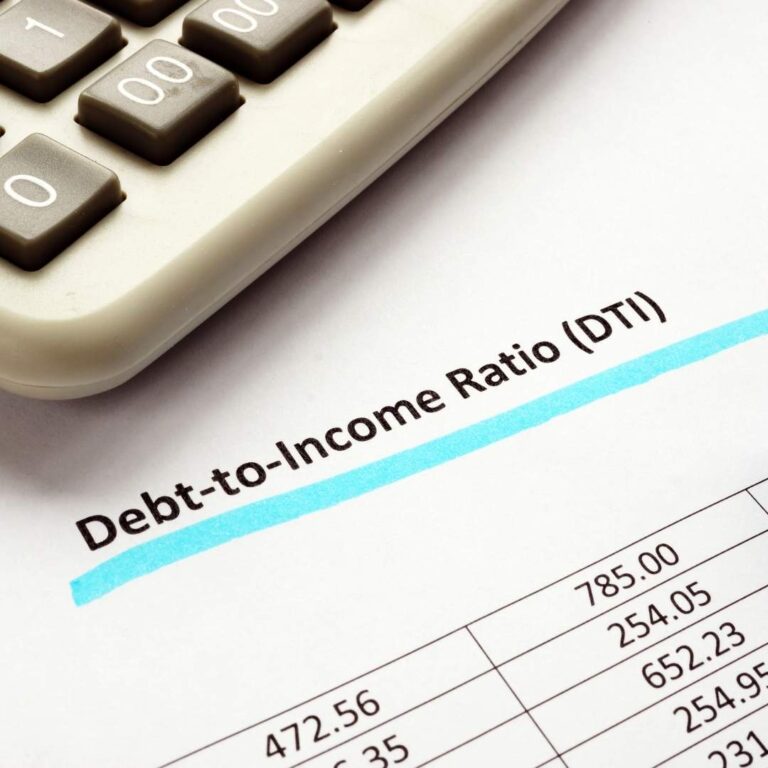Financial Planning Calculators
Take control of your finances with our range of smart financial planning calculators. From goal-based savings to retirement and insurance needs, get quick insights to plan, save, and grow your money effectively.

Term Insurance Coverage Calculator

Portfolio Equity Allocation Calculator

Debt-to-Income Ratio Calculator

50/30/20 Budget Calculator

Take control of your finances with our suite of powerful, easy-to-use financial planning calculators. Whether you’re planning for retirement, estimating your future financial goals, or evaluating your current financial health, these tools are designed to provide clear insights and guide better financial decisions.
Our Financial Planning Calculators
At the heart of any sound financial journey lies clarity, discipline, and data-backed decision-making. To empower you with precisely that, we’ve developed a comprehensive suite of financial planning calculators. These tools are designed to help you understand various aspects of your finances, including saving and budgeting, as well as retirement and insurance planning.
Whether you’re planning for the future, reviewing your current financial situation, or simply exploring options, these calculators provide a practical, easy-to-understand, and actionable approach to financial literacy and planning.
Here’s a deep dive into each calculator and how it helps you make better money decisions:
1. Inflation Calculator
Why It Matters:
Inflation silently erodes the purchasing power of your money over time. What costs ₹1,000 today might cost ₹2,000 in a few years. Understanding this impact is crucial when planning for long-term goals, such as retirement, education, or housing.
What It Does:
Our Inflation Calculator helps you project how much more you’ll need in the future to afford the same items or lifestyle you enjoy today. You simply input the current cost of an item or expense, the expected inflation rate, and the number of years. The calculator will show you the future inflation-adjusted cost of that item.
Use Case Example:
You want to know how much your monthly expense of ₹50,000 will become in 20 years, assuming a 6% inflation rate. This helps you determine the realistic corpus you’ll need in retirement.
2. Future Value Calculator
Why It Matters:
Knowing how much your investments will grow over time is key to planning. Whether you’re investing in mutual funds, fixed deposits, or SIPs, this tool estimates what your savings will become after a specific period.
What It Does:
The Future Value Calculator uses the power of compound interest to help you see how much your current savings or regular investments will grow over time. Just input the amount, duration, frequency, and expected rate of return.
Use Case Example:
You want to invest ₹5,000 per month in a SIP with an expected return of 12% for 15 years. The calculator shows you how much wealth you can accumulate by the end of this period.
3. Present Value Calculator
Why It Matters:
This calculator helps you determine how much you need to invest today to reach a specific financial goal in the future. It’s beneficial for goal-based investing and lump sum planning.
What It Does:
It uses the reverse of the compound interest formula to help you arrive at the present value of a future financial goal. You’ll know exactly how much you need to invest now to meet that goal.
Use Case Example:
You want ₹10 lakhs for your child’s education over the next 10 years. If you expect a return of 10% annually, this calculator tells you the lump sum you need to invest today to meet that goal.
4. Retirement Planning Calculator
Why It Matters:
One of the most critical financial goals in life is building a sufficient retirement corpus. Without proper planning, you risk outliving your savings or compromising your post-retirement lifestyle.
What It Does:
Our Retirement Planning Calculator helps you estimate the amount you’ll need at the time of retirement to sustain your lifestyle until life expectancy. It factors in your current expenses, expected inflation, age of retirement, and expected returns post-retirement.
Use Case Example:
A 35-year-old wants to retire at 60 and currently spends ₹60,000 per month. The calculator determines how much they need to save monthly or build as a corpus to maintain their lifestyle after accounting for inflation adjustments.
5. Goal-Based Savings Calculator
Why It Matters:
Whether it’s buying a house, taking a vacation, or funding a child’s wedding, goal-based saving ensures that you’re financially prepared without disturbing other financial commitments.
What It Does:
This calculator tells you how much you need to invest each month to reach a specific financial goal within a given time frame. It accounts for your goal amount, expected returns, and time horizon.
Use Case Example:
You plan to buy a car worth ₹10 lakhs in 5 years. The calculator helps you determine how much to save monthly, assuming a 9% annual return on your investments.
6. Age-Based Emergency Fund Calculator
Why It Matters:
Life is unpredictable. A robust emergency fund enables you to tackle unexpected events, such as job loss, medical emergencies, or business downturns, without incurring debt or liquidating investments.
What It Does:
This calculator estimates the ideal emergency fund size based on your age, income, job type (salaried/business), and family situation. Younger individuals may need smaller buffers, while mid-life professionals with dependents may need more.
Use Case Example:
A 28-year-old salaried employee earning ₹40,000/month wants to know how much to save for emergencies. The tool recommends building a fund of 6 months’ expenses or more, depending on personal and professional factors.
7. Term Insurance Coverage Calculator
Why It Matters:
Term insurance is the most cost-effective way to protect your family’s financial future in your absence. But how much coverage is enough?
What It Does:
This calculator helps you determine the adequate term insurance coverage you need based on your current income, future obligations, liabilities, children’s education, and other dependents’ needs.
Use Case Example:
If you have a home loan, dependent parents, and school-going children, this calculator gives you a realistic figure, often 10 to 20 times your annual income, as your ideal term cover.
8. Portfolio Equity Allocation Calculator
Why It Matters:
A well-diversified portfolio strikes a balance between risk and returns, primarily when investing for long-term goals. Equity offers growth; debt provides stability. This calculator recommends the ideal mix.
What It Does:
Using an age-based rule (such as 100 minus your age), this calculator suggests the percentage of equity you should hold in your portfolio. Younger investors can afford higher equity exposure, while older ones need more debt.
Use Case Example:
If you’re 30 years old, the calculator might recommend a 70% equity and 30% debt portfolio. If you’re 55, the recommendation might shift to 45% equity and 55% debt.
9. Debt-to-Income Ratio Calculator
Why It Matters:
Your Debt-to-Income (DTI) ratio is a strong indicator of your financial health and your ability to take on new credit. It’s also something lenders consider before giving loans.
What It Does:
This calculator compares your total monthly debt obligations (such as EMIs and credit card dues) against your monthly income to calculate your DTI ratio. A lower ratio means healthier finances.
Use Case Example:
If your monthly income is ₹1 lakh and total monthly debt repayments are ₹40,000, your DTI ratio is 40%. The calculator indicates whether you’re in a safe range or need to reduce your debt.
10. 50/30/20 Budget Calculator
Why It Matters:
Budgeting is fundamental to financial success. The 50/30/20 rule offers a balanced approach to allocating your income across needs, wants, and savings.
What It Does:
Input your monthly income, and the calculator splits it into:
- 50% for essentials (rent, food, bills)
- 30% for wants (entertainment, travel)
- 20% for savings and investments
You can adjust these categories based on your personal goals and lifestyle.
Use Case Example:
You earn ₹80,000 per month. The calculator suggests allocating ₹40,000 for essentials, ₹24,000 for wants, and investing or saving ₹16,000. It’s a simple way to stay disciplined.
Why Financial Planning Calculators Are Important
Each calculator is built with the idea that financial empowerment starts with knowledge. They are not just number-crunching tools—they are designed to answer your most pressing financial questions:
- Am I saving enough for retirement?
- Will inflation ruin my future lifestyle?
- How do I prepare for emergencies?
- Am I under-insured?
- What’s the right investment mix for my age?
By using these tools regularly, you’ll gain a clearer understanding of your current financial situation and, more importantly, a realistic path forward.
Ready to Take Charge of Your Finances?
These calculators are free, quick, and easy to use; no downloads, no registrations, just valuable insights at your fingertips.
Explore each calculator and take one step closer to financial clarity and confidence.
Why Use Financial Planning Calculators?
- Clarity: Know your numbers before making decisions
- Customization: Enter values based on your financial situation
- Accuracy: Based on proven formulas and practical assumptions
- Planning: Ideal for salaried individuals, business owners, and young earners
Start Planning Smarter, Today
Your financial journey deserves the right tools. Whether you’re just starting or revisiting your strategy, these calculators offer the insight needed to plan confidently.

Disclaimer
These financial planning calculators are designed to offer broad guidelines and general insights into various aspects of personal financial planning. The generated are based on the values you input and certain commonly accepted financial assumptions or formulas. However, individual circumstances may vary greatly depending on personal risk tolerance, life goals, income stability, liabilities, market fluctuations, and other dynamic factors.
While these financial planning calculators are a great starting point, they should not be considered a substitute for professional financial advice. We strongly recommend consulting a certified financial planner, tax advisor, or investment expert before making any significant financial decisions based on calculator results.
Use these financial planning calculators for educational and planning purposes only; final financial strategies should always be tailored to your unique needs by a qualified professional.
VSJ FinMart is a registered Mutual Fund Distributor (MFD) and does not offer fee-based financial planning or advisory services. The calculator is for educational purposes only, and VSJ FinMart shall not be held liable for any financial decisions made based on its output.






